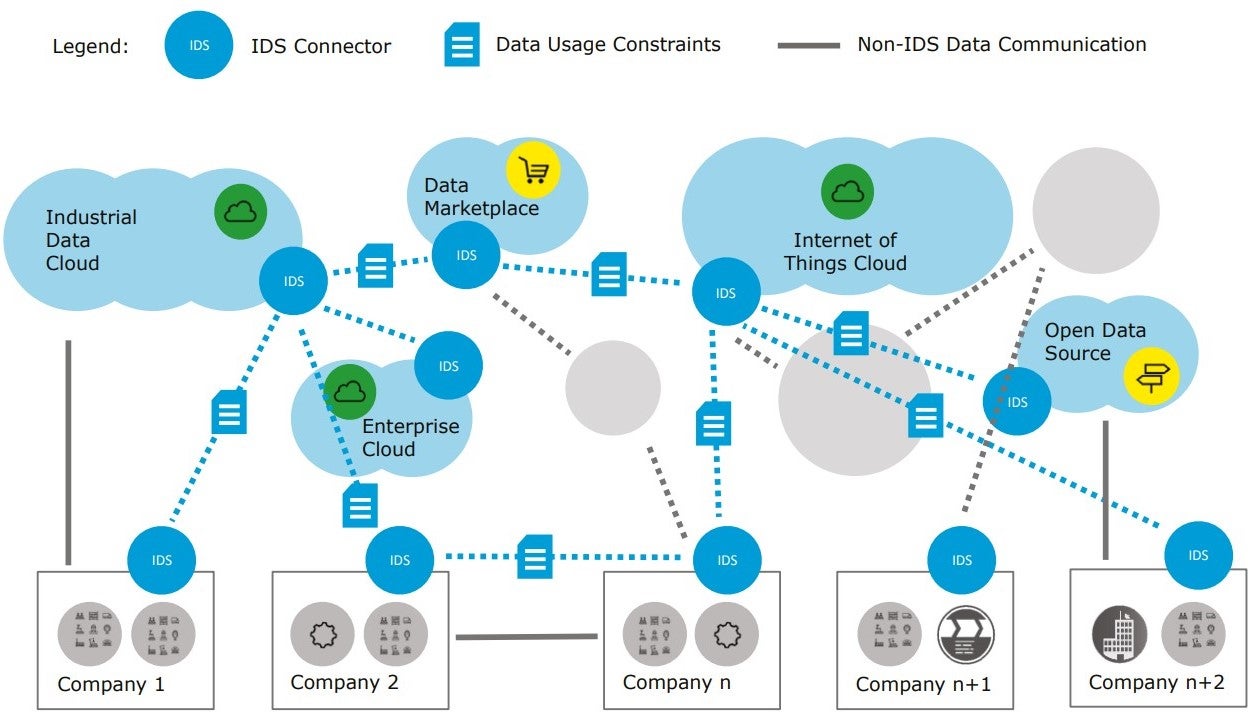 Auto factory in Turkey. Photo credit: seyephoto/Shutterstock
Auto factory in Turkey. Photo credit: seyephoto/Shutterstock
Data is among the main drivers of innovation, economic growth, and development, spurring interest around the globe in how to fully benefit from this fast-growing “data economy.” Quoting the 2021 World Development Report: Data for Better Lives, “the innovation resulting from the creative new uses of data could prove to be one of the most life-changing events of this era.”
With volumes of data generated in all sectors of the economy exponentially increasing, the question of making data safely and efficiently accessible and usable is central. Access, usage, and sharing are now at the core of many countries’ digital transformation strategies.
The World Bank partnered with the Turkish government to explore an innovative and powerful way to accelerate data sharing, namely the creation of “data spaces,” with the broader objective of boosting productivity and competitiveness in the manufacturing sector.
So, what is a data space? It is a secure and trusted exchange ecosystem, in which participants can manage their data assets in a sovereign fashion, based on mutually agreed rules. In other words, a data space provides an environment in which participants can share and use data with other organizations in a safe, secure, regulated, and self-determined way. Providers can easily manage risks of exposing potentially sensitive content, while users can have access to high-quality data and thus generate added value.
Figure 1: Overview of a data space
A fundamental aspect of these spaces is that data is not transmitted between participants as in a data cloud, nor pooled into a common data lake (a storage repository that holds raw data in its native format). In fact, data never leaves its owner. All participants have an interface (a “connector”) to their database, which grants them access to the data space. Then, other participants can run algorithms on the data made available, but only at this connector level.
Thanks to this approach, data owners keep full control of their data, can fully define the set of rules that apply to the usage of their data, and have security guaranteed by a set of certified entities (broker, clearing house, registration authority, etc.). In addition, a participant needs only one registration (making the system highly scalable), and no external IT (Information Technology) provider is involved (improving confidentiality).
Setlog’s system OSCA® is a concrete example of how a data space can be used in logistics. The system uses the Data Intelligence Hub technology (a marketplace developed by Deutsche Telecom and compliant with the International Data Space Association requirements) and is designed to predict precisely when goods will arrive at their destination using analytics. To do so, historic data are combined with planning data, actual data from OSCA® and public information (such as traffic and weather patterns). The benefits of this solution include improved forecasts of probable arrival time of a shipment, higher transparency in transport and delivery, optimized coordination, reduced costs, time and resources, as well as faster detection and correction of problems in the supply chain.
Our analysis confirmed the strategic value of data spaces for Turkey in terms of improving cooperation, efficiency and innovation, and their relevance for a priority sectors like manufacturing, with expected benefits ranging from product to process and systems innovations (e.g., real-time supervision across the whole value chain, predictive maintenance, etc.).
Yet, the generalization of data sharing will face technical, operational, and legal challenges. A survey conducted of around 1,800 manufacturing firms in Turkey confirmed the limited extent of data sharing today. The results showed that only 18 percent of the surveyed firms said they exchange data in their industrial ecosystem. The other 82 percent of firms were unclear about the impact of not sharing data on their business, and cited barriers to adoption such as the lack of technical knowledge and data skilled workers in the company (32 percent), uncertainties about legal liabilities and costs in the cases of data leaks or theft (26 percent), cyber-security concerns (23 percent), and a distrust of data from other companies (21 percent), among others.
For governments looking at ways to accelerate the creation of data ecosystems, initiatives at the European Union level and at the national level in Germany, the Netherlands, Japan and Singapore suggest several overarching roles for governments:
- take a leadership role by defining a unified and comprehensive digital transformation vision and strategy that puts data and Artificial Intelligence at its core.
- create a trusted and enabling environment that promotes and supports data sharing across organizations and domains and encourages the emergence of new business models.
- promote data-sharing initiatives that intend to develop knowledge and expertise and to accelerate adoption, especially toward Small and Medium Enterprises that face higher barriers to entry compared to large companies.
- take responsibility to intervene “upstream” by increasing digital skills among citizens and businesses and creating progressively a digital culture.
When it comes to digital transformation, unique country contexts mean governments will need to adopt different strategies. Our analysis in Turkey identified key initiatives and policy decisions that leaders may use to further foster the creation of data spaces. This research can serve as a resource for other countries looking to address data challenges in ways that can accelerate economic growth, reduce poverty, build resilience, and create opportunities for all.
Related:
Digital Development at the World Bank
Digital Development Partnership



Join the Conversation